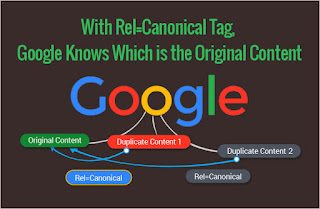Do You Know about URL Canonicalization in SEO?
What is URL Canonicalization?
The term Canonicalization can be difficult to get it. Give me a chance to attempt to clarify this in straightforward terms. URL Canonicalization is a method for picking one of the favored goal or URL and makes utilization of 301 sidetracks for occupying traffic from alternate URLs to favored URL.
Suppose there are two URLs of a site:
http://vggroups.com
https://www.vggroups.com
Both of those pages show substance, and none of these pages sidetracks to any of them. This can result in copy content issue on Google, and you can confront punishments.
Give us a chance to see one more precedent. There are two URLs on a site that outcome in similar page goals.
http://vggroups.com
https://www.vggroups.com/index.php
On the off chance that both of these website pages demonstrate a similar outcome, at that point this may cause an issue also!
You probably won’t give much consideration to this issue, however, this may result in genuine copy content punishments. The issue with web crawler bots is that they can’t choose which adaptation of the URL they should include their record. On the off chance that two pages are settling a similar substance, they will simply expect one duplicate is a duplicate of the other and your site will get punished.
On the off chance that your site is opening on 2 URLs appearing the same substance, at that point you should fix it. You should utilize server settings so whether a client opens with www or without www, the site will open on any of the one forms. Along these lines, you can fix the canonicalization.
However, now and again you might want to share the same substance on two URLs, at that point, you can utilize rel=” canonical” labels to let web index realize what is the first and which one is a duplicate of it. This can spare you from copy content punishments.
When would it be a good idea for you to utilize Canonicalization?
Since you realize what precisely Canonicalization implies, you can push ahead on the point and see when should you use it. Since there are a lot a bigger number of cases other than the two I have referenced in the precedents above.
Here are a couple of conditions that can be avoided with appropriate URL Canonicalization.
Distinctive URL for one same substance
Different classes and labels that outcome in the same substance
Portable site showing same substance however on various URL/subdomain
URLs having HTTP and HTTPS URLs and both bringing about same substance
Different Ports
At the point when the site has a www and a non-www form
If there should be an occurrence of sharing syndicated substance
These are some significant conditions in which we can apply URL Canonicalization to spare our site from confronting any sort of copy content punishment.
This is the point at which you ought not to perform URL Canonicalization!
There are situations in which we ought not to perform URL Canonicalization, and this area of this post is focused on indicating these specific conditions. You can likewise consider these as blunders with regards to URL Canonicalization. Give me a chance to list this one by one. I will endeavor to clarify the vast majority of them in an extremely basic way.
Skip pagination canonicalization
On the off chance that you are intending to canonicalize paginated URLs, at that point you should realize this is an extremely terrible thought. You ought not to include a canonicalization label the second page of a URL as that URL won’t be ordered at all by Google.
How the Canonical Tag Applies to SEO
You’re most likely thinking about how the majority of this applies to you. Basically, it comes down to SEO. In spite of the fact that there are different approaches to utilize the standard tag to your advantage, it is for the most part about amplifying for SEO. Canonicalization is when singular pages are found and sought from numerous URLs. The issue with this procedure is that a similar substance is being credited to – and dispersed crosswise over – various distinctive URLs. This parts up your substance for the web crawler and makes it feel that content pulled is from an assortment of sources and not yours.
This spreads you out and doesn’t legitimately ascribe results to your pages. You need the majority of your traffic and ventures to be recorded together, guaranteeing your page stays well known and positions. The authoritative URL label fills in as a method for telling web crawlers where your substance originates from, guaranteeing that you are credited for your unique substance and that everything helps rank as one unit. This is a gigantic headway for SEO services purposes and incredible methods for shielding your rankings from individuals who simply need to take your substance positions.
Utilizing Canonical Links Instead of 301 Redirects
In spite of the fact that superficially the usefulness of a sanctioned connection is very like that of a 301 divert, regarding measurements they are definitely not. While they both advise web crawlers to treat various pages (or URLs) as a solitary page, a 301 diverts all traffic to a particular URL and a sanctioned tag does not.
In the event that your site structure has changed, at that point a 301 divert is the favored alternative since it will likewise address bookmarks. On the off chance that your site has copy content, however, you have to gauge traffic to every URL, utilize a sanctioned connection to assist the web crawlers.
In spite of the fact that punishment for copy content is improbable, having web search tools list the majority of your copy content influences the significance of their outcomes, and could likewise influence how your pages rank; eventually influencing your website traffic, and income. In any case, authoritative labels are not an enchantment shot that will naturally improve your destinations permeability, in the event that anything, wrong execution of them could influence your general position.
In the event that you haven’t acquainted accepted labels with your site yet, you should first cautiously think about the genuine need (do you have copy content, or numerous URLs indicating a similar substance?), before illustration up a system on the best way to actualize, and on what pages. On the off chance that you have just presented accepted labels, it might return to the usage to guarantee it was altogether done effectively, and that you aren’t concealing any pages that ought to be listed.




Comments
Post a Comment